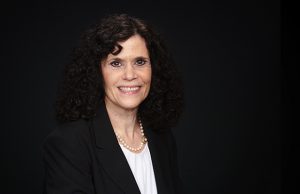 At St. Francis School of Law, giving back to the community is an important value. Our professors live out this value in a variety of ways, including pro bono service and volunteering their time, and provide an important example to our students of the power to bring good to the lives of others through lawyering. Prof. Karen Travis recently shared her experience with St. Francis students as part of the program’s Career Insights series.
At St. Francis School of Law, giving back to the community is an important value. Our professors live out this value in a variety of ways, including pro bono service and volunteering their time, and provide an important example to our students of the power to bring good to the lives of others through lawyering. Prof. Karen Travis recently shared her experience with St. Francis students as part of the program’s Career Insights series.
Who represents the best interests of children in foster care from a neutral perspective and reports to the court to assure that the child’s special needs are met? The Court Appointed Special Advocate (CASA) is there, and Professor Karen Travis has been volunteering her time and serving the interests of foster children for six years, recently completing her latest assignment.
“I am privileged to be involved with CASA and to serve the interests of children through this program,” Prof. Travis said, “It’s one of the best things I have done as a lawyer.” Prof. Travis teaches contracts, torts and criminal law in the St. Francis online Juris Doctor program. She also teaches the FYLSE (First Year Law Students’ Examination) Prep class. As part of her community service, she serves as a special advocate for foster children.
CASAs are appointed by judges in the Dependency Court for foster children whose life circumstances of abuse or neglect provide particular challenges. A CASA investigates the special needs of their assigned foster child and serves as an advocate for the child by assuring that they receive appropriate residential placement, educational, medical, and therapeutic services.
In the process of representing a foster child, the CASA considers the safety and well-being of each child as paramount. This includes making sure the basics are in place, and addressing the physical and emotional consequences of any abuse and neglect. In developing recommendations for the court, a CASA considers the merits of all legal options available to the child, including family reunification, foster placement, adoption, and legal guardianship.
As Prof. Travis explained, “It is very rewarding to be able to use my legal knowledge and experience to improve the life of a child who through no fault of their own, has been thrust into the dependency court system because their parent is unable to provide a safe and nurturing environment for them. In my recent assignment, the child had been placed in multiple foster homes over the years because his parents were unable to properly care for him due to their drug abuse. To make matters worse, the child has severe learning disabilities that made switching schools with each new placement particularly difficult for him. My advocacy for the child’s special educational and mental health needs, in conjunction with social services, enabled him to return permanently to his mother’s home. That means this child no longer needs the protection of the court and I can look forward to my next assignment!”
